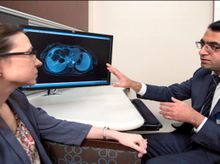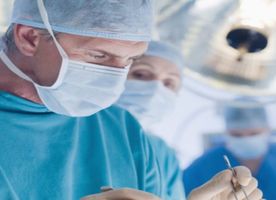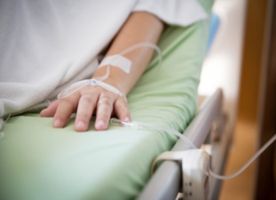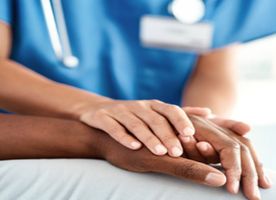Colon/Bowel Cancer Treatment in South Africa
Search and Compare the Best Clinics and Doctors at the Lowest Prices for Colon/Bowel Cancer Treatment in South Africa






Colon/Bowel Cancer Treatment at UCT Private Academic Hospital in Cape Town, South Africa





Colon/Bowel Cancer Treatment at Netcare N1 City Hospital in Cape Town, South Africa





Colon/Bowel Cancer Treatment at Ahmed Kathrada Private Hospital in Johannesburg, South Africa
Our partner clinics in are accredited by the following associations















































































































































No Time?
Tell us what you're looking for and we'll reach out to the top clinics all at once
WHY US?















































































































































No Time?
Tell us what you're looking for and we'll reach out to the top clinics all at once
What does a Colon/Bowel Cancer Treatment Procedure Involve?
Your surgeon may recommend a minimally invasive approach for early-stage colon cancer, which may involve removing polyps during a colonoscopy for small and localized cancer, endoscopic mucosal resection for larger polyps, and laparoscopic surgery for polyps that cannot be removed through a colonoscopy.
If you have advanced colon cancer, your surgeon may recommend partial colectomy to remove parts of your colon that contain cancer, surgery to create a path for waste to leave your body, and lymph node removal. All of these surgeries are performed under general anesthetic. If your doctor recommends chemotherapy, drugs are used to destroy the cancer cells, while with radiation therapy, powerful energy sources are used to kill cancer cells.
How Long Should You Stay in South Africa?
You will need to stay in the hospital for a few days after the surgery, usually around four to five days. After you are discharged from the hospital, plan to stay in the South Africa for 7 to 14 additional days for initial recovery and follow-up checkups where your doctor monitors your condition and will remove any stitches. If you underwent chemotherapy or radiation therapy, your length of stay depends on how many cycles are required for your particular case.
The procedure type involved in the Colon/Bowel Cancer Treatment can influence the stay period. Laparoscopic procedures, for instance, may result in shorter hospitalization periods than traditional surgeries. The need for supplementary treatments like chemotherapy or radiation therapy could potentially extend the South Africa stay duration. Often, these additional treatments are carried out in cycles over several weeks or months, needing regular monitoring.
Other factors like your general health, age, and concurrent medical conditions could also shape the length of stay. It is crucial to discuss thoroughly with your care providers to grasp the approximate schedule and plan your future accordingly.
What's the Recovery Time for Colon/Bowel Cancer Treatment Procedures in South Africa?
You should be able to return to work within four weeks after the surgery, but you should avoid any strenuous activities, such as intense exercise, abdominal exercises, and heavy lifting for about six weeks. After therapy, you should be able to go to work in 1-2 days or when you do not have any symptoms that interfere with your ability to perform your regular activities.
In this phase, individuals may undergo adverse symptoms like exhaustion, queasiness, and a weakened immune system. Sustaining a healthy dietary plan, consistent exercise suited to individual capability, and ways to manage stress, advised by health practitioners, can relieve these adverse effects and facilitate recuperation. It's imperative to comprehend that recuperation isn't solely about physical recovery; it also encompasses adapting to fresh lifestyle modifications and handling the emotional elements of cancer survival. Significantly, each person's healing journey is distinctive, leading to differing recuperation timelines. Some might revive notably swiftly, while for others, the process might be lengthier.
What sort of Aftercare is Required for Colon/Bowel Cancer Treatment Procedures in South Africa?
The post-treatment management after undergoing a Colon/Bowel Cancer Treatment procedure greatly contributes to the patient's healing and overall recovery process. In the immediate stages after the operation, key attention is given to controlling pain, tending to the surgical wound, and averting complications. Instructions are given to patients on the proper maintenance of their surgical wounds, dealing with any pain or discomfort, and recognising indicators of possible complications like infections or excessive bleeding. Gradual resumption of normal activities is typically tailored according to the patient's progress.
Steadily increase your daily activity level once you are discharged from the hospital, try to take a walk as it will help to strengthen your muscles, help your lungs stay clear, and keep your blood circulating. It is also important for you to eat a healthy diet after any type of treatment. Attend regular checkups with your doctor so they can monitor your health.
Patients undergoing chemotherapy or radiation therapy require continuous care to regulate side effects and track their reactions to the treatments. This consists of frequent appointments with their healthcare professionals and a series of examinations to evaluate the state of their cancer.
What's the Success Rate of Colon/Bowel Cancer Treatment Procedures in South Africa?
The rate of positive outcomes from Colon/Bowel Cancer Treatment in South Africa can notably sway a patient's choice for treatment. Positive outcomes often indicate the proportion of patients who have successfully undergone treatments leading to illness remission or considerable control over the progression of the disease. Factors such as the disease's stage upon discovery, general health of the patient, efficacy of the treatment, and individual response to therapy, altogether determine the prognosis and success rate for patients suffering from bowel cancer. When diagnosed and treated early, the survival rates for bowel cancer can escalate to as much as 90%. However, the success rate is lower if you receive the treatment in later stages.
It's important to realize that the measure of success doesn't stand alone when deciding on a course of treatment. A bespoke evaluation considering the patient's health status, personal choices, and specific circumstances, is crucial.
Are there Alternatives to Colon/Bowel Cancer Treatment Procedures in South Africa?
If you are not an ideal candidate for colon cancer surgery, your surgeon may recommend an operation to relieve a blockage in your colon. This procedure is performed to relieve symptoms instead of curing cancer.
This information has been accurately sourced and verified by a medical professional for its accuracy, however, we strongly recommend you to consult with your doctor before pursuing medical procedures overseas.



